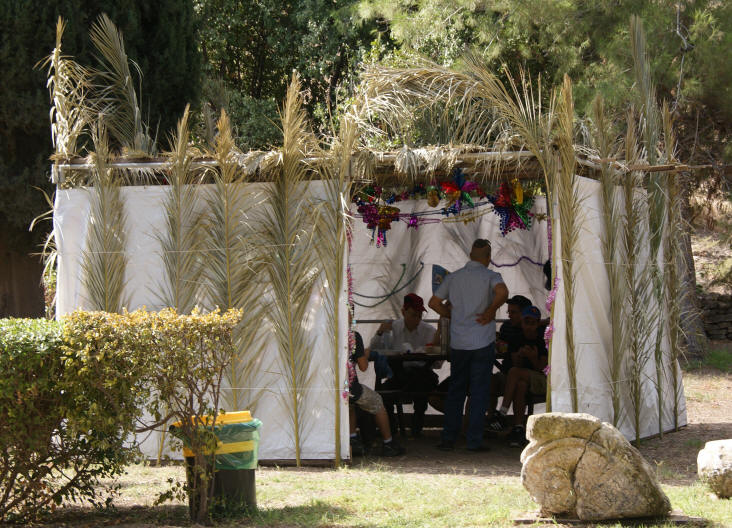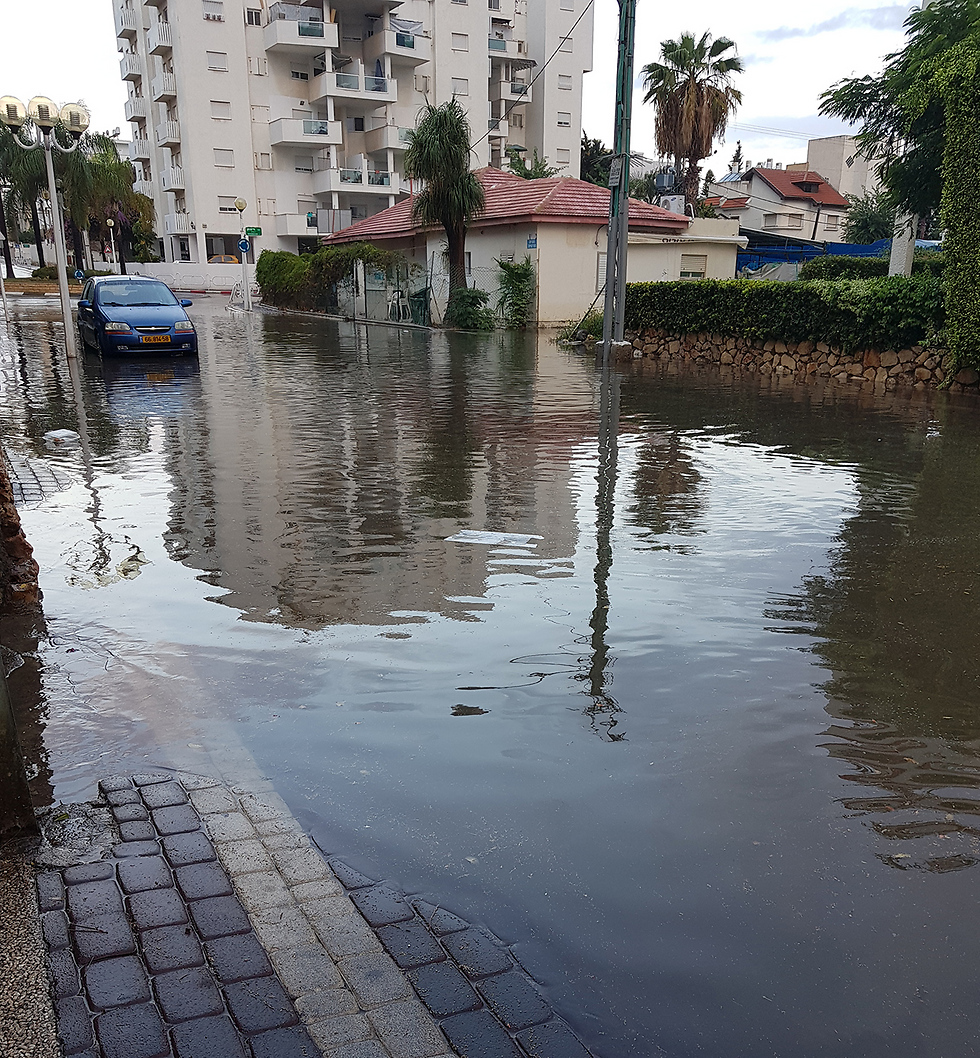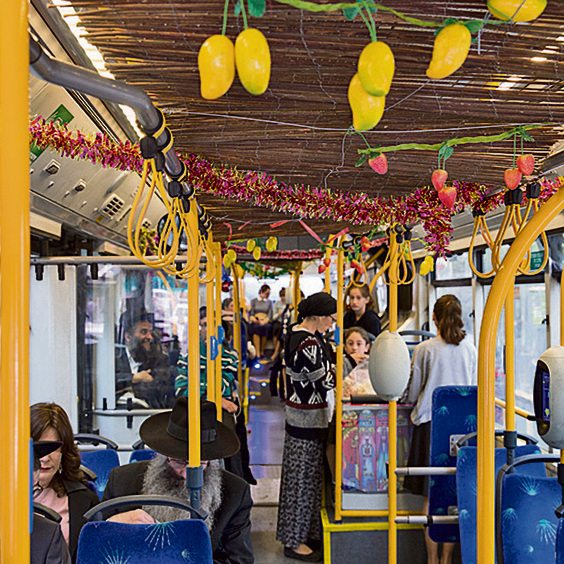GO BACK TO THE DESERT
Therefore I am now going to allure her;
I will lead her into the wilderness
and speak tenderly to her.
I will lead her into the wilderness
and speak tenderly to her.
Hosea 2:14
| Maktesh Ramon, Negev Desert, Israel |
Here in Israel we have just finished celebrating the Feast of Succot (Tabernacles) in which we remember Israel's wanderings in the desert following the exodus from Egypt. You may ask, why did Israel have to wander in the desert for 40 years, or for that matter why did they have to go to Egypt and become slaves in the first place? Of course the Bible tells us that the 40 years of wandering were caused by Israel's lack of faith at Kadesh Barnea, when they refused to enter the promised land because of their fear of the strength of its inhabitants, but was there another reason too?
Many years ago someone said to me that the God of Israel is a God of the desert. Those words stuck in my mind and have resonated throughout my life. When I want to hear from God or have a deep need of communion with Him, I go out into the desert (or wilderness*).
If you read the Bible you will know that many of the great men and women of God, met Him and heard from Him in the desert - for example, Abraham, Moses, Jonah, Elijah, John the Baptist and even Yeshua (Jesus) himself (Matthew 4:1, Luke 5:16). It is interesting to note that the Hebrew word for desert is midbar (מדבר) comes from the same root as the word for 'speak', mdaber (מדבר). It is also the same root as the word for 'word' (דבר). And who is the Word? God.
In the beginning was the Word, and the Word was with God, and the Word was God.
John 1:1
Prior to the Babylonian Exile, God spoke to the prophet Hosea and told him to take a harlot and adulteress for a wife. This was to be an object lesson for the people of Israel, who had rejected the true God, her husband, in favor her lovers, the Baals, the false gods of the surrounding peoples.
She said, ‘I will go after my lovers,
who give me my food and my water,
my wool and my linen, my olive oil and my drink.
Hosea 2: 5
"I will go back to my husband as at first,
for then I was better off than now."
Hosea 2: 7
Then God drew her into the desert places or wilderness and spoke tenderly to her, so that he could restore to her all that had been lost.
Therefore I am now going to allure her;
I will lead her into the wilderness
and speak tenderly to her.
15
There I will give her back her vineyards,
and will make the Valley of Achor ** a door of hope.
There she will respond as in the days of her youth,
as in the day she came up out of Egypt.
Hosea 2: 14-15
Just like Israel, we all sometimes forget who is our true husband, protector and provider. We go our own way for a while, but God, who loves us, will sooner or later draw us back to the desert, to speak tenderly to us, to restore us to himself. This is true for us as individuals and also true for the nations, especially Israel. Disillusioned with the emptiness of rabbinic Judaism, many in Israel today have turned their back on the God of Israel and are running after false gods, the gods of the far east, Hinduism and Buddhism, the gods of New Age, the gods of witchcraft and sorcery, or the gods of hedonism and materialism. Sooner or later these gods will disappoint, for they are empty. They cannot satisfy.
Hosea's prophecy related to his time, but was only partly fulfilled at that time. Complete fulfillment will only occur at the end of the age. The phrase 'in that day' of Hosea 2:16 is an indicator that what follows relates to the times of the end. In the times of the end Israel must pass through another wilderness experience, the time of Jacob's trouble (Jeremiah 30:7), such as she has never known until now, but when all is lost, and she has come to the end of her own strength, disillusioned with her false gods, then God will gently woo her back and she will return to her true husband, the God of Israel, God of the desert. Sadly Israel, like all of us, must pass through the desert to reach the Promised Land.
This last weekend our congregation spent three days together in the desert, at Maktesh Ramon in the Negev. We sought to 'go back to the desert' both as individuals and as a congregation in order to stand 'naked' before God and to hear his voice. The desert is also a place, where in spite of all the arid barrenness around, there are springs of living water. In the days of the Temple, during the Feast of Tabernacles the priests would go down to the Spring of Siloam each morning, draw water, and take it up the hill to the Temple where they would pour it over the altar (1). It was on the last day of the Feast of Tabernacles, that Jesus proclaimed these words,
“If anyone thirsts, let him come to Me and drink. He who believes in Me, as the Scripture has said, out of his heart will flow rivers of living water.John 7: 37-38
And what are these rivers of living water? They are the indwelling Holy Spirit which was to come after Jesus was glorified (v39). We as a congregation considered how we would draw from the well of living water in order to bring it up to Jerusalem. Our congregation meets right in the heart of modern Jerusalem. We ask, how can we bring the Holy Spirit, the living water, to our so very thirsty city and land? Perhaps first we need to go back to the desert and draw deeply of the wells of living water we will find there.
| Streams of living water in the desert - Ein Ovdat, Negev Desert |
Now for some news:
Tension in the north
On Saturday, the 21st, at 5AM sirens sounded in several Golan Heights towns and people ran into their shelters as five mortar shells fired from Syrian territory landed in Israel, causing no damage to people or property. Shortly afterward Israel attacked and destroyed the artillery cannons from which the missiles were fired. Just three days earlier, on Thursday, the IDF attacked a Syrian outpost at Quneitra after an errant shell landed in Israel. These incidents are but the latest of a whole series of 'spillovers' from the Syrian civil war, but there has recently been an upsurge in such incidents as Syrian government forces attempt to retake the Syrian Golan from the rebel groups (2).
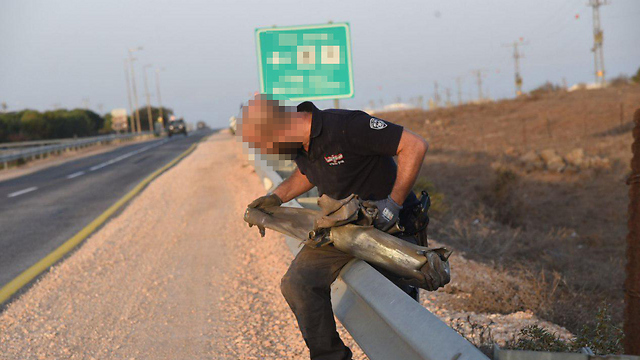 |
| Police sapper with piece of mortar shell fired into Israeli territory on Saturday https://www.ynetnews.com/articles/0,7340,L-5031606,00.html |
This all serves to warn us that the tension in the north could very easily escalate to out-and-out war, as Assad's Syrian government forces, backed by Russia, Iran and Hezbollah, regain control of the rebel-held territories. There is great concern about the influx of advanced missiles from Iran into Hezbollah's hands. Israel has made it clear it will not tolerate such shipments and has in the past destroyed a number. Hezbollah grows bolder and bolder in its boasting that it now has enough missiles to totally destroy every Israeli city.
Terror in Israel
The period of the High Holy Days is normally a time we expect an upsurge in terror attacks in Israel. This year however we had 25% fewer attacks in September than the average over the last five years. That said we had ONLY(!) 103 terror attacks in September, resulting in the deaths of three Israelis (4).
Jerusalem March
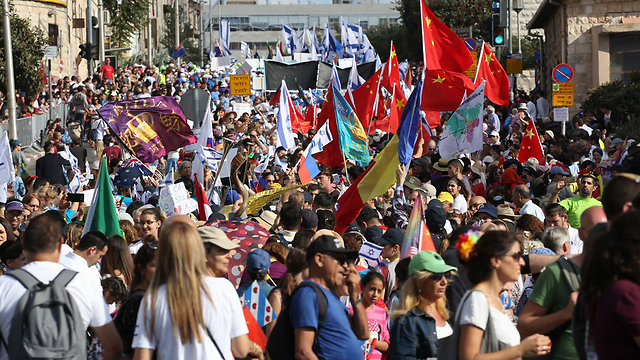 |
| Jerusalem March 2017 (Photo: Ohad Zwigenberg) https://www.ynetnews.com/articles/0,7340,L-5027168,00.html |
On the 6th day of Succot tens of thousands of people from all over the world took part in the annual Jerusalem March. This March has taken place now for 60 years but this year was special as it marked the 50th anniversary of Jerusalem's reunification in 1967 (5).
Ultra-Orthodox Anti-Draft Protests
Traffic flow around the city, and elsewhere around the country, has repeatedly been seriously affected this month by ultra-orthodox men protesting the compulsory draft into the IDF. Although they usually receive an exemption from having to serve, the law requires them to register at the draft offices. Over the past weeks a large number have been arrested for failing to do so prompting large-scale protests. Major arterial roads and the light rail trains have been blocked causing massive traffic disruption and outbreaks of violence.
On Monday I was twice caught up in these traffic problems as I tried to negotiate my way around the city, but was forced to take long detours and sit for long periods in tail-backs (traffic jams). On the way home from the city later that night, I noticed a terrible stench in the area of the Strings Bridge at the main entrance to the city. I later learned that police had for the first time used this 'odor cannon' to disperse the protestors. It smelled like silage or the effluent from a refet (indoor cow sheds). It stank!!! I think it is probably an effective measure but I did feel sorry for the people who live in the area.
These actions are not only alienating the ultra-orthodox even more from mainstream Israeli society but are causing a deep rift within the ultra-orthodox community itself. Most do not identify with the protest and it is only one stream, the Jerusalem Faction, that is involved. Members of the Jerusalem Faction do not recognize the legitimacy of the Israeli state and therefore refuse to follow the law and will not take part in the IDF(6). I see this as hypocrisy in its most extreme as they enjoy the safety and protection of the State of Israel, but none of the responsibilities of a citizen.
| http://www.tabletmag.com/wp-content/files_mf/rally620.jpg |
UN Boycott
Next month the UN Human Rights Council plans to publish a list of some 150 or more companies accused of violating human rights. The names of the affected companies have not yet been announced but some have been leaked to the Press. Last Thursday the national newspaper, Yediot Aharonot, published the names of 25 Israeli companies believed to be on the list. Those names are Amisragas, Angel Bakeries, Arison Investments, Ashdar, Café Café, Clal Industries, Cellcom, Danya Cebus, Dor Alon, Electra, Hewlett Packard, HOT, Israel Aerospace Industries, Matrix Systems, Nesher, Partner, PAZ Gas, Rami Levy, Remax, Shikun & Binui, Shufersal, Bank Leumi and Sonol. If you are familiar with Israel you know that these are all large, well-known companies in Israel which operate all over the country and in the West Bank. Israel and the US are working behind the scenes to try and stop the UN from publishing this blacklist. As Efrat Council head and chief foreign envoy of the Yesha Council, Oded Revivi, pointed out,
...instead of boycotting the companies on the blacklist the UN should hand them Nobel Peace Prizes.
“These companies are the ones that employ and support thousands of Palestinian families...
“Jews and Arabs are brought closer together in their factories where they work in the same building. Those who want to boycott these companies only distance coexistence, good neighbor relations and joint economic growth."The nations may plot harm to Israel but God will have the last word, as it is prophesied,
Then the sovereignty, power and greatness of all the kingdoms under heaven will be handed over to the holy people of the Most High. His kingdom will be an everlasting kingdom, and all rulers will worship and obey him.
Daniel 7: 27
* Note: the Hebrew word, midbar, usually translated into English as 'desert' is more correctly translated 'wilderness', meaning simply a region outside of towns or cultivated areas, so is not always, strictly speaking, true desert. In Israel however most of the region lying outside of human settlement is either very arid steppe country or true desert. The Greek word 'eremos' also means an unpopulated, uncultivated area.
** Valley of Achor - an actual geographical location east of Jericho, but also literally translates as the Valley of Trouble.
References:
(1) http://www.chabad.org/holidays/JewishNewYear/template_cdo/aid/1971019/jewish/The-Joyous-Water-Drawing-Ceremony.htm
(2) https://www.ynetnews.com/articles/0,7340,L-5031505,00.html
(3) https://www.ynetnews.com/articles/0,7340,L-5029195,00.html
(4) htttyp://www.jpost.com/Israel-News/September-terror-attacks-against-Israelis-dip-to-five-year-low-507992
(5) https://www.ynetnews.com/articles/0,7340,L-5027168,00.html
(6) http://www.jpost.com/Israel-News/WATCH-Haredim-block-traffic-in-mass-protest-over-draft-law-507824
http://www.jpost.com/Israel-News/Haredi-protestors-shut-down-Jerusalem-roads-for-the-second-week-in-a-row-508213
(6) http://www.jpost.com/Israel-News/Companies-targeted-by-UNHRC-settler-blacklist-reject-wrongdoing-charges-508574
** Valley of Achor - an actual geographical location east of Jericho, but also literally translates as the Valley of Trouble.
